What is a line of symmetry?
(A line that divides a shape into two identical parts.)
What is rotational symmetry?
(When a shape looks the same after being turned less than a full circle.)
What shape has 2 pairs of parallel sides and no right angles?
(Parallelogram)
What are the three 2D views we look at when drawing a 3D object?
(Top, Front, Side)
How many lines of symmetry does a rectangle have?
(2 lines)
True or False: A rhombus has rotational symmetry.
(True)
Which quadrilateral has 4 equal sides but does not have any right angles?
(Rhombus)
Why is it important to look at all three views when constructing 3D shapes?
(You need to look at all 3 views to know how to construct your object)
True or False: A parallelogram always has at least one line of symmetry.
(False)
What is the order of rotational symmetry for a rectangle?
(Order 2)
Which shape has opposite sides that are equal and 4 right angles?
(Rectangle)
What two views tell us about an objects height?
(Front & Side)
How many lines of symmetry does a square have?
(4 lines)
What is the order of rotational symmetry for a square?
(Order 4)
True or Flase: If a rhombus has the mimum properties of 2 pairs of parallel lines, and 4 equal sides, then a square can be considered a rhombus
(True)
Which 3D Object matches these views?
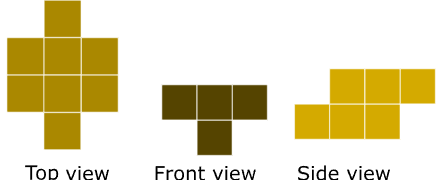
A: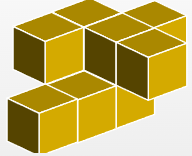 B:
B: 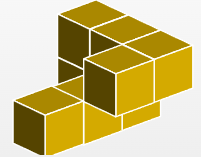 C:
C: 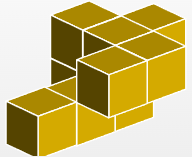 D:
D: 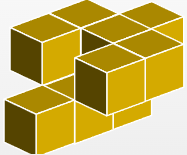
(D)
Name a quadrilateral that has no lines of symmetry.
(Right Angle Trapezoid)
Does an isosceles trapezoid have rotational symmetry? Why or why not?
(No, because it does not look the same after any rotation.)
What is the difference between a rectangle and a parallelogram?
(A rectangle has 4 right angles; a parallelogram does not need to.)
Which 3D object matches these views?

A: 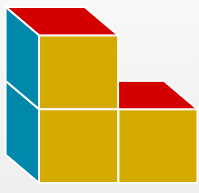 B:
B: 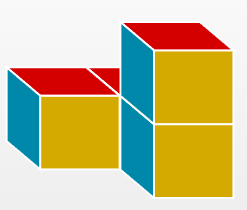
C: 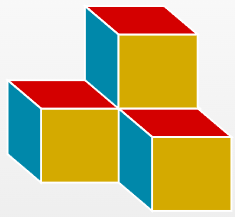 D:
D: 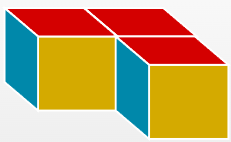
(A)